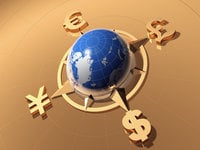The global economy is bouncing back, according to the World Bank’s Global Economic Prospects, five years after the financial crisis shook the world.
The current turnaround for the global economy is being driven mainly by economic growth in advanced economies, as well as growth in China, albeit at a more moderate pace.
Will Fed tapering affect emerging economies? The authors of the report added that 2014’s growth prospects are sensitive to the US Federal Reserve’s scaling back of the bond-buying stimulus program, as well as some structural shifts occurring in the Chinese economy.
Prospects for the emerging economies
According to the report, the emerging economies, which grew by 4,8% in 2013, are forecast to grow by:
- 5.3% in 2014.
- 5.5% in 2015.
- 5.7% in 2016.
Growth prospects over the next few years are much more moderate than they were during the 2003-07 boom period – about 2.2 percentage points lower. However, this is not a cause for concern, the authors emphasized.
According to the report, “Almost all of the difference reflects a cooling off of the unsustainable turbo-charged pre-crisis growth, with very little due to an easing of growth potential in developing countries.”
Growth over the next few years will be 60% greater that it was during the 1980s and early 1990.
Forecast for the global economy
The global economy, which grew by 2.4% in 2013, is predicted to grow by:
- 3.2% in 2014.
- 3.4% in 2015.
- 3.5% in 2016.
For the advanced economies the negative effect of fiscal consolidation and policy uncertainty on growth will continue to ease.
The developed nations
The advanced economies, which grew by 1.3% in 2013, are expected to grow by:
- 2.2% in 2014.
- 2.4% in 2015.
- 2.4% in 2016.
Among the most developed nations, the US has the most notable economic recovery, with GDP having expanded for 10 successive quarters. The US economy, which grew by 1.8% in 2013 is forecast to expand by 2.8% in 2014, 2.9% in 2015 and 3% annually in 2015 and 2016.
After two years of economic contraction, the Eurozone is expected to grow by 1.1% in 2014, and then 1.5% each year until the end of 2016.
Kaushik Basu, Senior Vice President and Chief Economist at the World Bank, said:
“Global economic indicators show improvement. But one does not have to be especially astute to see there are dangers that lurk beneath the surface.
The Euro Area is out of recession but per capita incomes are still declining in several countries.”
”We expect developing country growth to rise above 5 percent in 2014, with some countries doing considerably better, with Angola at 8 percent, China 7.7 percent, and India at 6.2 percent.
But it is important to avoid policy stasis so that the green shoots don’t turn into brown stubble.”
In order to increase the capacity of their economies and restore pre-crisis growth rates, the World Bank urges developing nations to implement structural reforms.

